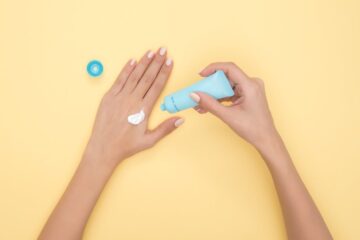When we think about skincare, our minds often go straight to aesthetics: glowing skin, reduced wrinkles, or the latest beauty trends. But beyond the visual appeal, there is a deeper and often overlooked connection between skincare and mental health. Taking care of your skin is not just about vanity; it is an act of self-care that can bring genuine psychological benefits. From boosting confidence to reducing stress, the rituals of skincare can play a surprisingly powerful role in overall mental well-being.
Skincare as a Form of Self-Care
Modern life moves fast, and stress has become a constant for many people. Amid the chaos, skincare can serve as a grounding ritual, a few moments in the day devoted entirely to yourself. The act of cleansing, moisturizing, and applying serums can be meditative, much like making a cup of tea or going for a short walk.
Studies in psychology have shown that even small self-care routines can improve mood and reduce anxiety. When you intentionally care for your skin, you are sending a message to yourself: I am worth this time and effort. Over time, these small acts of self-respect can build up, helping to combat feelings of burnout and emotional exhaustion.
Confidence and Self-Esteem
Skin issues like acne, rosacea, or hyperpigmentation can significantly affect self-esteem. Many people feel self-conscious about visible skin problems, which can lead to avoiding social situations, workplace interactions, or even personal relationships.
Investing in a skincare routine and seeking professional help when needed can lead to noticeable improvements in skin health. These changes often translate into higher confidence levels. Feeling comfortable in your own skin can make it easier to engage socially, pursue opportunities, and express yourself without the distraction of self-consciousness.
Professional services, like those offered at dermani Medspa, can also help address persistent concerns that home routines cannot fully solve, making the process both effective and rewarding.
Stress Reduction and Mindfulness
The sensory elements of skincare can also help reduce stress. The scent of a cleanser, the smooth texture of a moisturizer, and the gentle massage during application all engage your senses in a calming way.
This is where skincare intersects with mindfulness, the practice of being fully present in the moment. When you focus on each step of your routine and notice the sensations, you are giving your mind a break from the constant loop of stress or worry. Over time, this mindful habit can improve emotional regulation, reduce symptoms of anxiety, and enhance your ability to cope with daily challenges.
The Connection Between Skin and Mental Health
Interestingly, skin health and mental health are connected in both directions. Stress and anxiety can trigger or worsen skin conditions such as eczema, psoriasis, and acne. At the same time, these conditions can cause emotional distress, creating a cycle that is hard to break.
By proactively caring for your skin, you are not just improving its appearance. You are also taking steps to break this negative cycle. Reduced breakouts or flare-ups can ease emotional distress, while the act of self-care provides stress relief that supports healthier skin in return.
The Role of Professional Treatments
While home skincare routines are essential, professional treatments can enhance results and further contribute to mental well-being. Visiting a medspa or dermatologist provides access to advanced techniques and products that can address specific concerns more effectively.
Beyond the results, there is also an emotional benefit to letting someone else care for you. Professional treatments can feel indulgent in the best way, reinforcing the message that your health, both physical and mental, is worth prioritizing. For many people, this can be a valuable boost to overall life satisfaction.
Building a Positive Routine
Humans thrive on structure, and skincare routines offer a small but reliable framework to start and end the day. Morning routines can energize and prepare you for the day ahead, while evening routines help signal to the body and mind that it is time to wind down.
A consistent skincare ritual becomes more than just a beauty practice; it becomes a mental anchor in your daily life. When everything else feels uncertain, these small, predictable moments can create a sense of stability and control, which are vital for mental health.
Social Connection and Shared Experience
Skincare is no longer a solitary activity; it has become a cultural and social topic. Friends share product recommendations, online communities discuss tips, and people connect over their experiences with different routines. Engaging in these conversations can provide a sense of belonging and mutual support.
Whether it is bonding with a friend over face masks or discussing your latest serum find, these shared experiences can contribute to emotional well-being. Feeling connected to others, even over something as seemingly simple as skincare, can have powerful mental health benefits.
Positive Body Image Reinforcement
Body image issues are not limited to weight or shape. Skin appearance plays a significant role as well. By caring for your skin, you can shift the focus from flaws to overall health and self-respect. This reframing can reduce negative self-talk and replace it with a more compassionate internal dialogue.
In the long run, this can help cultivate a healthier relationship with your body. Instead of treating skincare as a means to fix yourself, it becomes a way to honor and maintain your well-being.
Empowerment Through Education
Learning about skincare ingredients, treatments, and routines can be empowering. Understanding what your skin needs and how to address those needs gives you a sense of control over your appearance and health. This empowerment can extend beyond skincare, boosting confidence in other areas of life.
For example, knowing how to manage stress-related breakouts can make you feel less at the mercy of your circumstances, which is beneficial for both skin and mental health.
The Cumulative Effect
Perhaps the most important aspect of skincare’s mental health benefits is the cumulative effect. One night of using a nourishing face mask will not instantly change your mood, but consistent care, day after day, builds resilience. Over time, your skin improves, your confidence grows, and your self-worth becomes more firmly rooted.
This ongoing process can help create a positive feedback loop: caring for your skin improves your mood, which reduces stress, which further benefits your skin. It is a cycle worth nurturing.
The Last Word
Looking after your skin is not just about looking good; it is about feeling good from the inside out. The physical improvements are real, but the mental health benefits can be even more profound. By integrating skincare into your daily life, you are doing more than maintaining a healthy complexion. You are creating a ritual of self-care, building confidence, reducing stress, and reinforcing your sense of self-worth.




